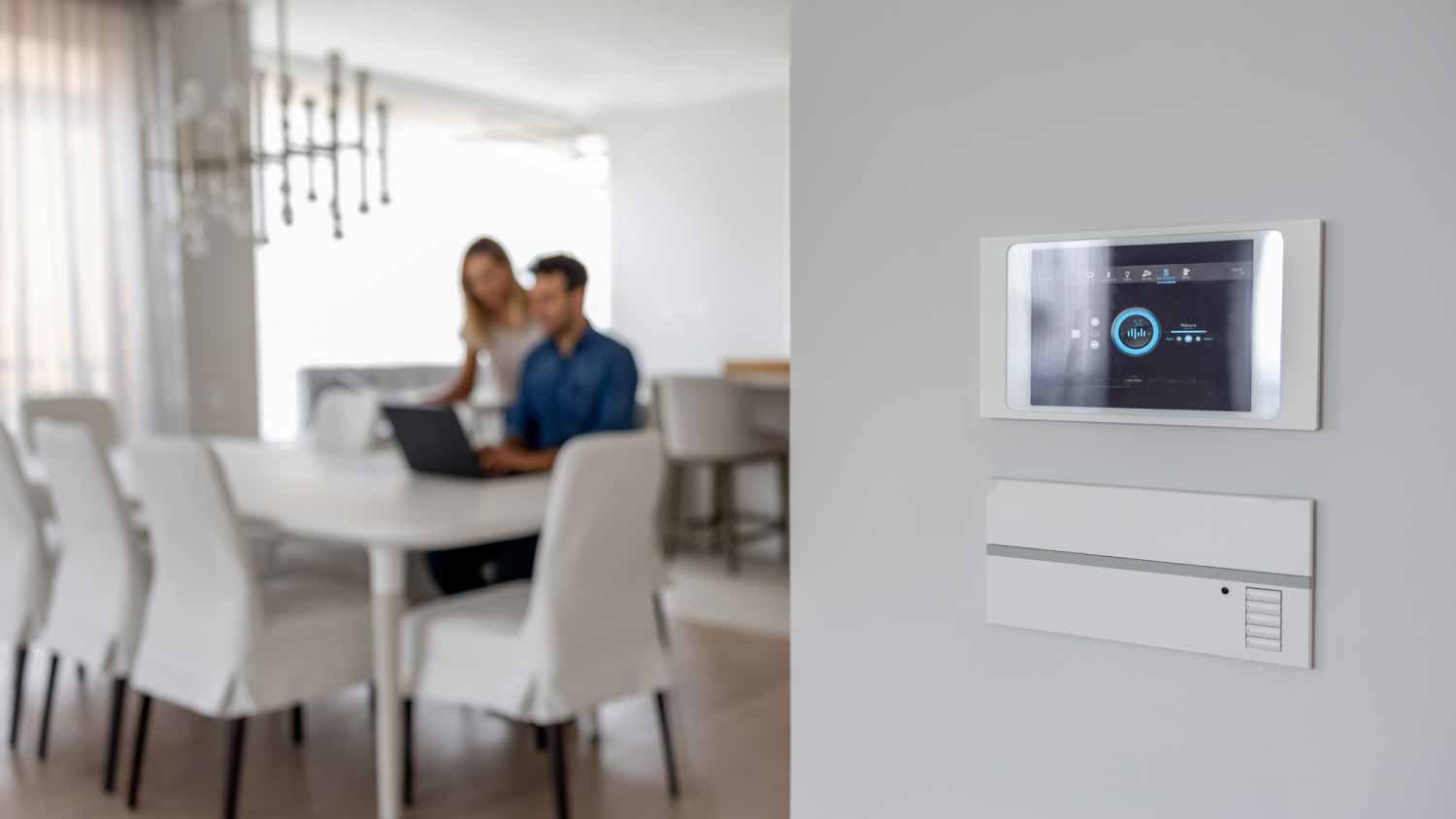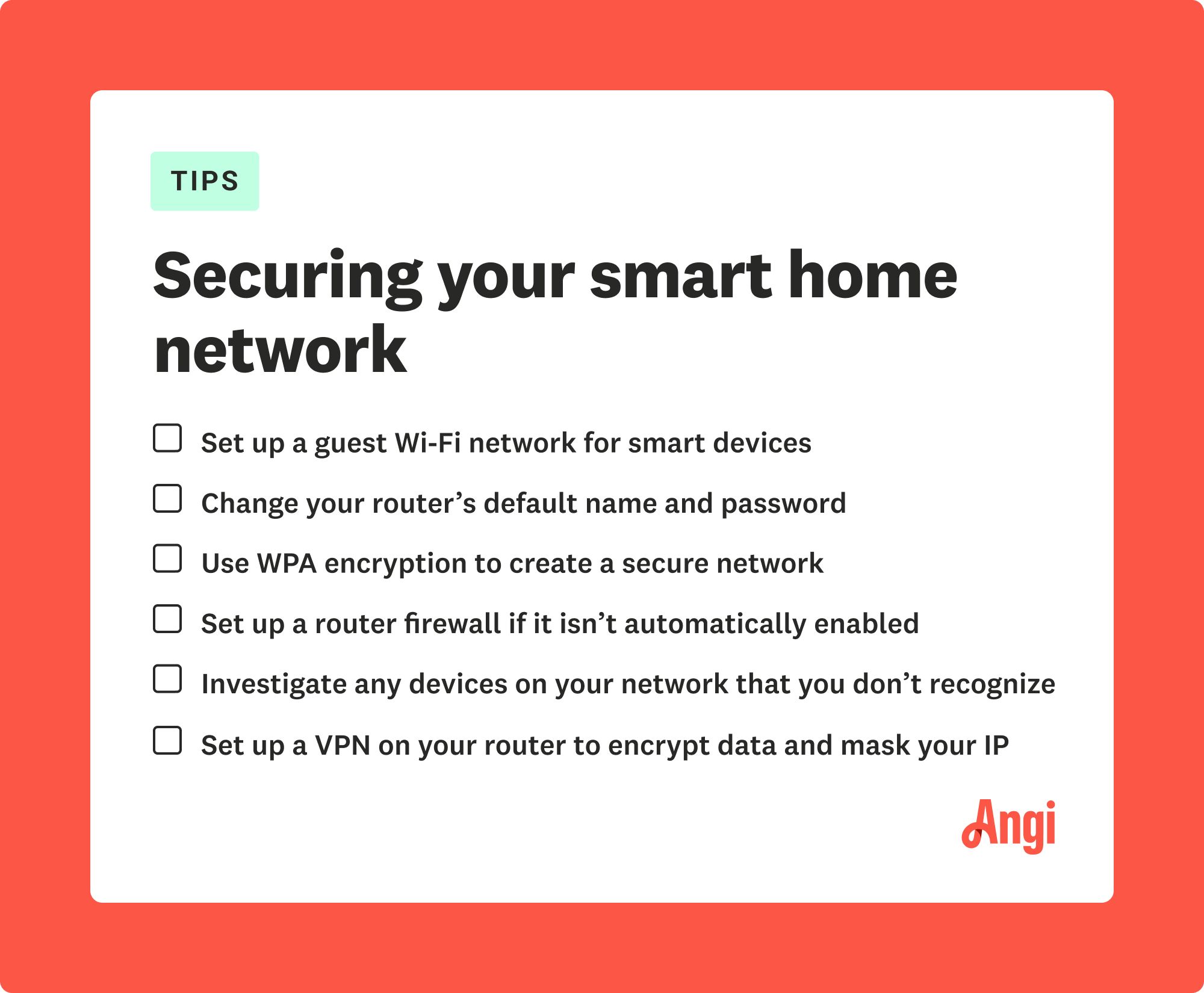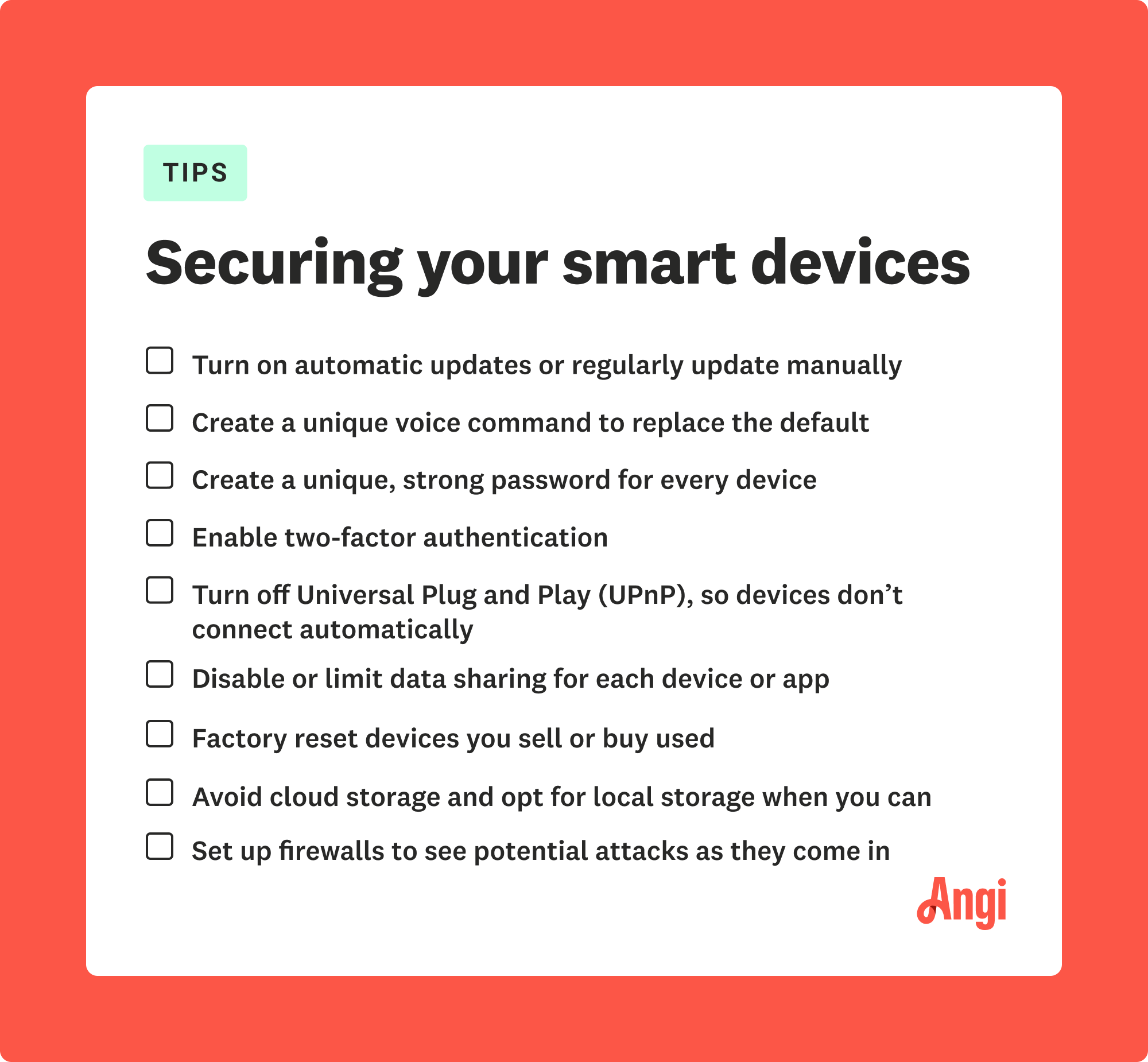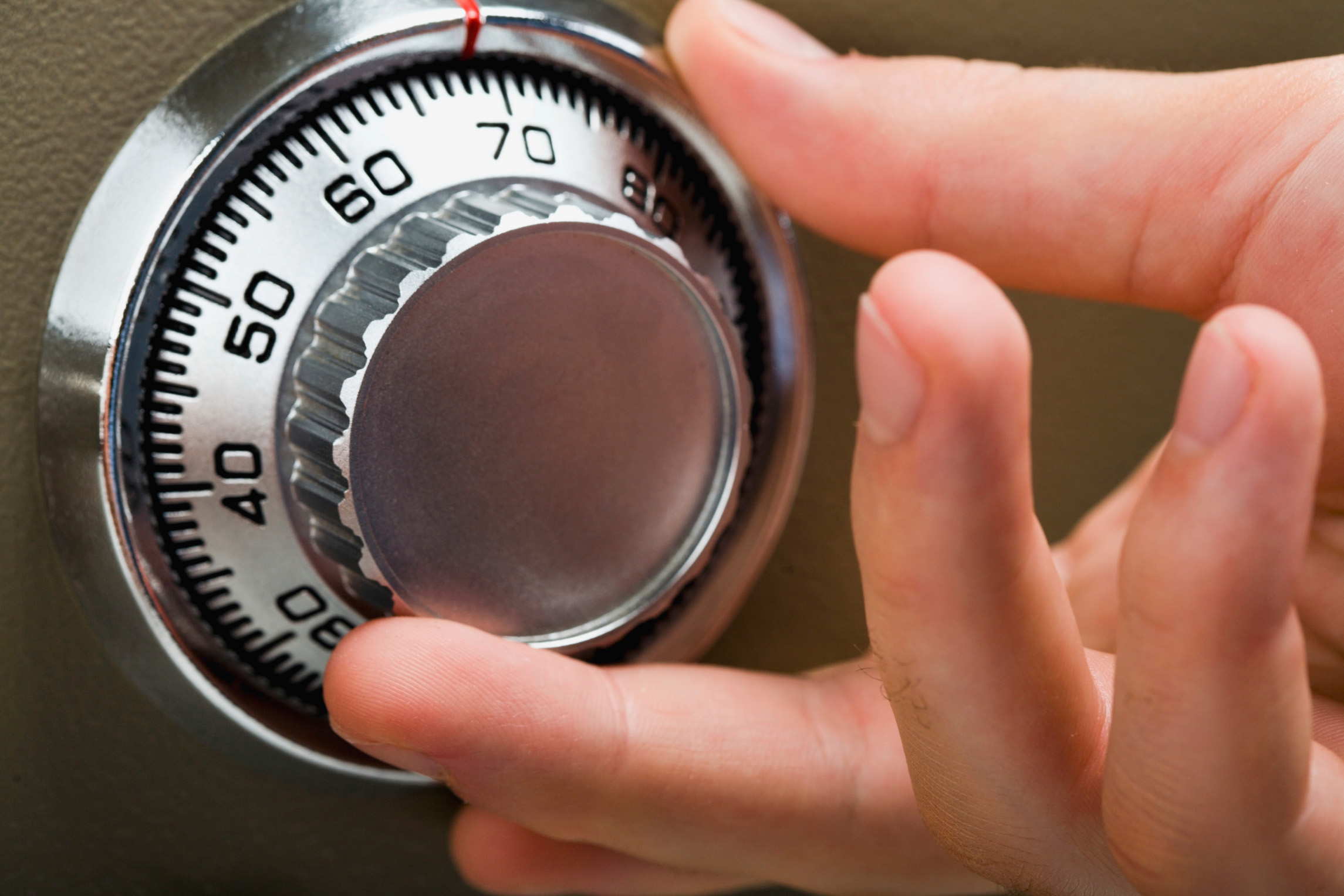
From warding off intruders to protecting from falls, bars on windows can make a home much more secure. Here’s how much it costs to install bars on windows.
Internet devices make life convenient, but they come with data security risks


Smart home devices offer the convenience of remote control.
Hackers accessing your home network create various security risks.
To help avoid risks, secure both your network and your devices.
These days, nearly any device can connect to the web. Smartphones, lights, cameras, thermostats, speakers, watches, doorbells, and appliances can communicate and be controlled remotely. All this interconnectivity creates vulnerability to cyber attacks, putting devices and shared info at risk. So, are smart home devices safe? Let's get to the root of these security risks and how to reduce them.
Smart home technology uses a network of internet-connected devices that can be controlled and monitored remotely. Smart tech can help improve home security, enhance entertainment, or simply make daily tasks like writing grocery lists or turning on lights more convenient.
Connecting devices together requires a hub, which could be a network router or a smartphone. Smart homes collect, store, and share usage data through the hub, which may help homeowners save energy or automatically tune their devices to their specific needs and preferences.
Despite the convenience, all the data sharing and internet connectivity of a smart home network can also create a personal data security risk. Each device adds new privacy concerns.
Smart home safety comes down to the configuration of these individual devices as well as the security of the network they're on. For example, if the data in your network isn't secure, hackers may track your usage patterns to see when you're away. Unprotected smart homes are also vulnerable to the following threats, among others.
Smart home devices often store sensitive data. Hackers can access personal details, email passwords, social media accounts, and even banking or credit card information.
When a cyber attacker gains control of a smart device, they can put you and your home at risk. They may see inside your home through security cameras, control what you see on your display, break into smart locks, and access smart speakers to speak to you directly.
There are many other ways for hackers to disrupt smart devices. By intercepting communication between two devices, they may be able to send false requests, create false alarms, or even install malware. They could even render a device completely useless, meaning you'll have to pay to have it replaced.

Don’t let security threats prevent you from taking advantage of modern smart technology. Instead, take measures to set up your smart home so that it’s secure. This should be done in two ways: First, by securing your network, then by securing your individual smart devices.
Start by isolating your smart home network from other networks in your home. The simplest way to do this is to set up a guest network for your smart devices and appliances separate from the main network you use for personal phones and computers. This will prevent your personal devices from becoming infected if a smart device gets hacked.
If you need help setting up your network safely, talk to a home security expert near you.

With your network secured, move on to securing all of your individual devices. Before you buy any device, do research to ensure the manufacturer provides regular updates. These updates are designed in part to protect against the latest security threats. If your device doesn't update automatically, be sure to update it as often as possible.
Be wary of voice-activated devices that are constantly listening, such as smart speakers. If you don't intend to use voice controls on a device, turn the microphone off. If your device responds to a specific voice command, make it one that's unique to your family rather than the default.
Create a unique, strong password for every device with a difficult-to-guess string of lowercase and uppercase letters, numbers, and characters. You can keep track of passwords using a password manager, so you don't have to keep anything written down.

Smart home devices present some security challenges. However, if you're careful and take steps to protect yourself and your home, they also offer a number of advantages.
Smart lighting can be turned on no matter where you are in the world to make it look like someone is home.
Smart locks remove the need to hide a spare key under the doormat and help you manage access for house sitters and cleaners.
Door and window sensors can tell you when you've left an entry point unlocked.
Wi-Fi security cameras let you monitor your front door and track deliveries.
Smart appliances self-adjust to operate more efficiently and save you money on utilities.
These are just some of the benefits that smart devices have to offer. Keep in mind that you'll need to secure every new device you buy. Additionally, even after you've followed the measures to secure your network and devices, you'll need to stay diligent and monitor your system regularly to keep your home truly safe.
From average costs to expert advice, get all the answers you need to get your job done.

From warding off intruders to protecting from falls, bars on windows can make a home much more secure. Here’s how much it costs to install bars on windows.

Discover wall safe installation cost details. Learn about average prices, key cost factors, and tips to save on your wall safe project.

A security camera system gives you peace of mind that there’s always a watchful eye on your home. Learn the costs of installing surveillance cameras.

When comparing motion detectors vs. window sensors, you’ll want to compare cost, security level, customizations, and more. See how each compares in this guide.

Need to know how to reset an alarm system? Our guide outlines the four easy steps it takes to reset your device without needing to call a pro.

Learn how to install a doorbell camera—whether it’s wired or wireless—with this guide. Know the steps so you can decide whether to DIY the job or hire a pro.